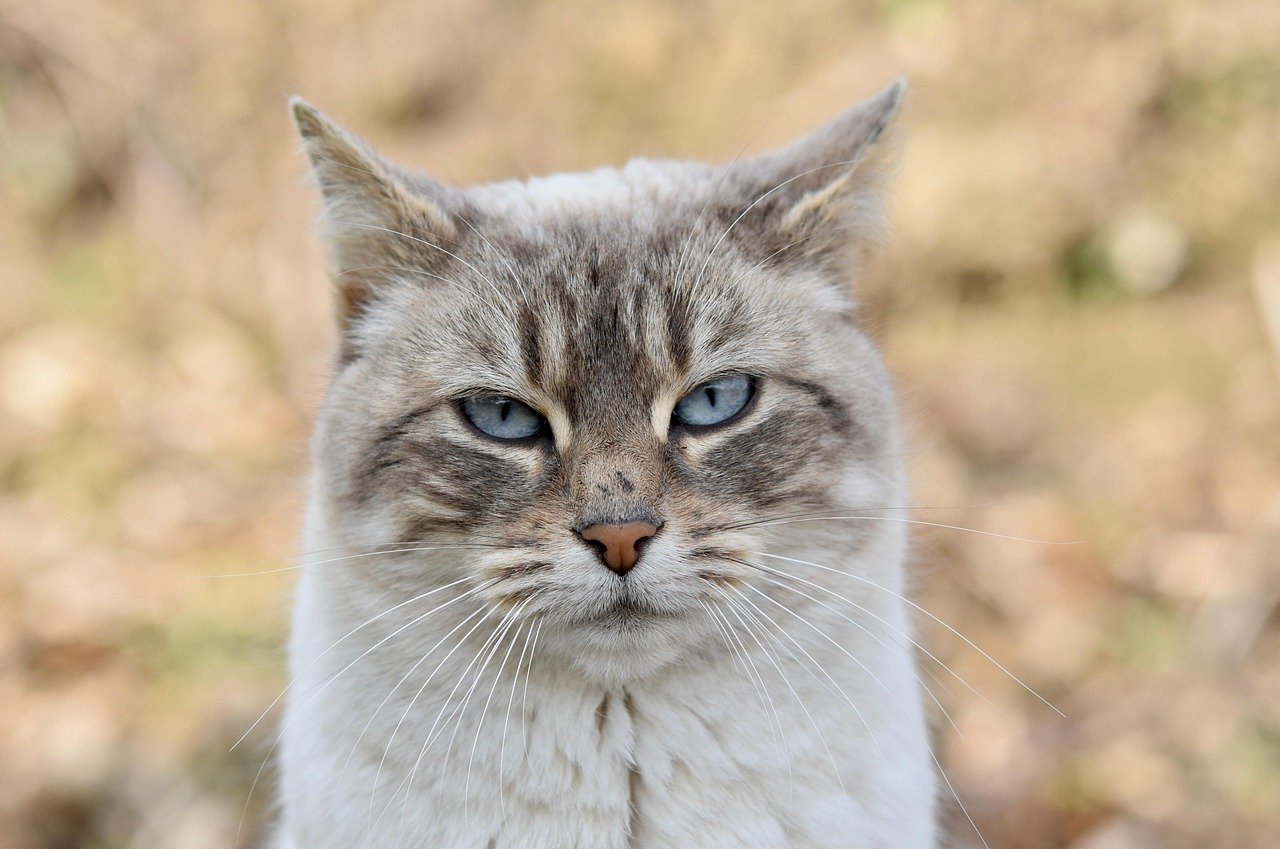Have you ever looked into your cat’s eyes and wondered what they’re truly thinking? Maybe you’ve caught them giving you that classic, exasperated stare, or perhaps they’ve stormed off after a failed attempt at a cuddle. It’s a feeling every cat parent knows – the sense that your feline friend is desperately trying to tell you something, but the message just isn’t getting through. Cats are mysterious, enchanting creatures, but being misunderstood can leave them frustrated and you feeling helpless. Let’s explore the subtle (and not-so-subtle) signs your cat might be tired of being misunderstood, and how you can finally bridge that gap.
Unusual Hiding Habits
When a cat suddenly starts seeking out strange or hidden places more than usual, it can be a strong sign that they’re feeling misunderstood or overwhelmed. Cats often retreat to quiet, secluded corners when they want to escape the chaos of a home where their needs aren’t being met. If you notice your cat spending more time under beds, in closets, or behind furniture, it’s time to pay attention. This behavior isn’t just about wanting alone time — it can be a plea for privacy or a signal that their emotional boundaries have been crossed. Think of it like a person who leaves a noisy party because they feel left out or unheard. If your cat’s hiding seems new or more frequent, it’s an unmistakable sign they’re seeking relief from misunderstanding.
Avoiding Affection
Cats have their own ways of showing affection, and every cat is different. But if your once-snuggly companion now dodges your hand or avoids sitting in your lap, they might be tired of having their signals ignored. Sometimes, well-meaning owners misinterpret a tail flick or flattened ears as playful, when in fact, the cat is saying “I need space.” Over time, repeated misunderstandings can make your cat pull away. You may notice them darting off when you enter the room or giving you a wide berth. This emotional distance isn’t random – it’s their way of protecting themselves from further frustration. Understanding these moments is key to rebuilding trust.
Vocalizing More Than Usual

A cat’s voice can be a window into their soul. If your cat has suddenly become more vocal, meowing in a tone that sounds frustrated or persistent, it could be a cry for understanding. Cats use different sounds to communicate, but when those meows go ignored or are misinterpreted, the volume and frequency may increase. Some cats even develop a certain “complaining” meow, which almost sounds like they’re scolding you for not getting the hint. Think of it as a friend repeating themselves, louder each time, when you don’t grasp what they’re saying. Pay close attention to new patterns in your cat’s vocalizations—they’re trying to tell you something important.
Sudden Changes in Litter Box Behavior
Nothing says “I’m upset” quite like a cat suddenly refusing to use their litter box. This behavior can be shocking and stressful for owners, but it’s often rooted in emotional distress. If your cat starts eliminating outside the box, especially after changes in your household or routines, they might be expressing frustration or confusion. Cats are creatures of habit, and a stressed or misunderstood cat may use their bathroom habits to get your attention. Just as a frustrated person might slam a door to make a point, cats know that a change in litter box behavior is hard to ignore. This isn’t just a mess—it’s a message.
Overgrooming or Neglecting Grooming
Grooming is a big part of a cat’s daily routine, but changes in this habit can signal emotional turmoil. If your cat starts overgrooming—licking the same spot until it’s raw—or, on the flip side, neglects grooming altogether, it’s a red flag. Overgrooming can be a way to self-soothe when they feel misunderstood or anxious, much like people might bite their nails when stressed. Neglecting grooming, on the other hand, can indicate a loss of motivation due to sadness or frustration. Watch for bald patches, dull fur, or tangles that weren’t there before. These physical signs are your cat’s way of showing that something deeper is going on.
Sudden Aggression or Irritability
A normally gentle cat who starts swatting, hissing, or biting may be at their wit’s end. Sudden aggression isn’t usually “bad behavior”—it’s often a last resort after repeated miscommunications. Cats can become irritable when their signals for play, food, or space are ignored. Imagine how you’d feel if someone kept interrupting you without listening to your requests. Cats remember when their boundaries aren’t respected, and they may lash out to set them more firmly. This shift in personality is a clear sign that your cat is tired of trying to get their point across the polite way.
Loss of Interest in Play
Playtime is more than just fun for cats—it’s how they bond, express themselves, and burn off energy. If your cat suddenly shows no interest in toys or games they once loved, take notice. A lack of enthusiasm can mean they’re feeling emotionally drained or disconnected. Just as people might lose interest in hobbies when they feel misunderstood by friends or family, cats can withdraw from play when their emotional needs aren’t met. This isn’t just laziness—it’s a sign that something deeper is happening. Reigniting your cat’s playful spirit may start with understanding and respecting their cues.

Growing up traveling and experiencing new cultures and wonders, I have had a passion for nature, adventuring, photography, and videography. I am currently working towards a BSc in Biodiversity and Ecology at Stellenbosch University, and I hope to specialise in Marine Sciences one day.
Please send any feedback to Feedback@animalsaroundtheglobe.com






